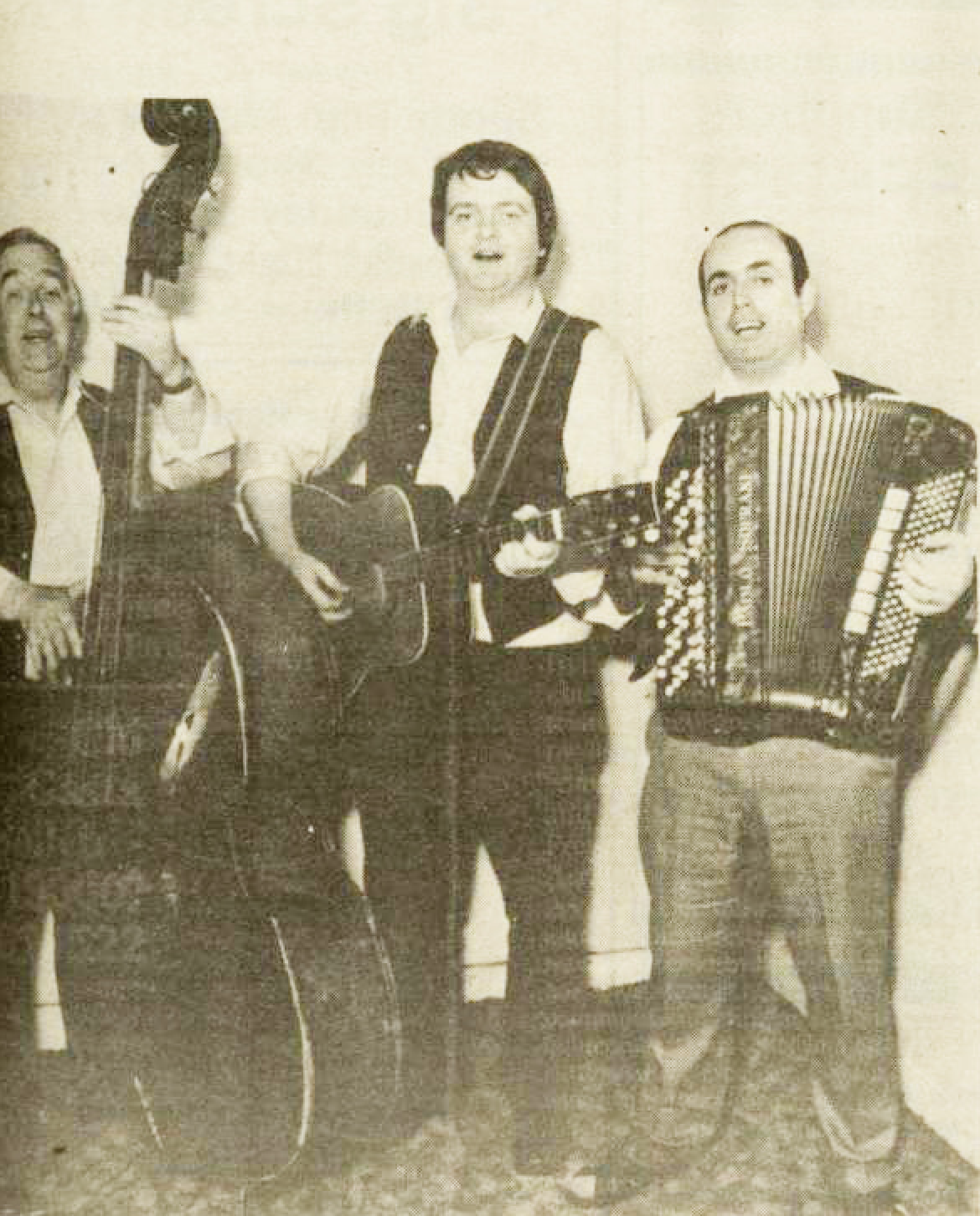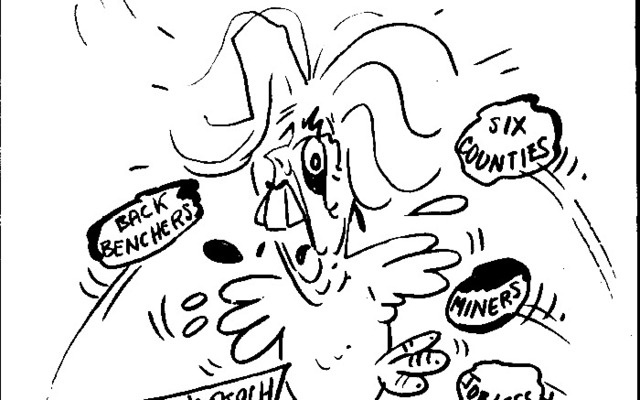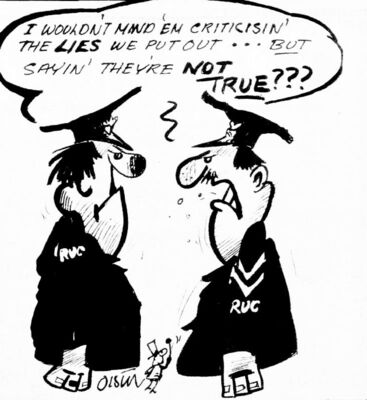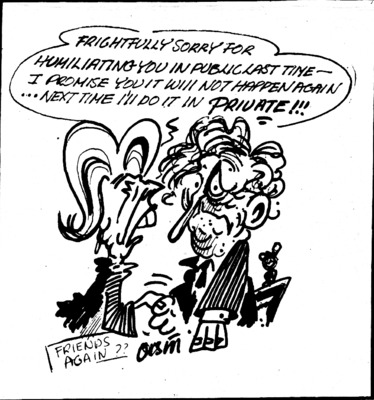We look at the stories that were making the headlines this week in 1983
Harassment of Irish prisoners stepped up in British prisons
Harassment of Irish political prisoners in British jails has been stepped up considerably in recent weeks, relatives of many prisoners are alleging.
At least one man has been severely beaten by wardens, while several others have had mail confiscated and visits disrupted because of sudden transfers from prison to prison.
In addition, the four Irishmen who took part in the much publicised rooftop protest at Albany Prison on the Isle of Wight in late May have been charged with a number of offences, including mutiny — an especially grave charge rarely brought against prisoners in this country.
The relatives say that the tough new regime has been imposed in the wake of the Albany affair, in which the four Irishmen joined other prisoners on the roof for six days and nights following a strike over conditions. Reports filtering out from the prisons through relatives, and co-ordinated by the London-based Relatives and Friends of Prisoners Committee show that summary transfers of prisoners on the eve of visits from relatives have increased in the weeks since the Albany protest. At least six Irish prisoners are known to have been moved in recent weeks and this has resulted in visits being cancelled and mail going astray, according to relatives.
The charges being brought against the four Irishmen who took part in the rooftop protest have only once previously been brought against Irish political prisoners in Britain and an appeal against that case is still pending at the European Court of Human Rights. The charges, to be heard by Albany's Board of Visitors, can result in unlimited new punishments for the men.
American visitor victim of RUC raid
THE American Consul in Belfast has agreed to take action this week following a Lenadoon house raid in which the personal diaries and address books of a prominent Irish-American were confiscated by the RUC.
Pat O'Hagan, an American writer, who is on a fact-finding mission for the powerful United Irish Organisation, New York, has described the incident as upsetting. Her main concern, she said, is for the people who are named in her address book.
"The RUC have no right to that information and I will be demanding its immediate return," she said.
Ms O'Hagan was at the Horn Drive house raided by the RUC but was out when the search took place. After the incident she spoke of the difficulty in getting used to the situation here.
"I can't get used to the army, to people pointing guns at me every time I walk down the street. It makes me very angry."
On Sunday 17t. July Ms O'Hagan was a passenger in a car stopped and searched by the British army in Lenadoon. On her return to the USA she plans to address the influential Senate Ad-Hoc Committee on Irish Affairs, which is made up of 130 Congressmen, as a representative of the United Irish Organisation. Member groups of the Organisation include the A.O.H, Noraid, The Irish Caucus, American Irish Congress and the Police Emerald Society.
Undaunted by her experiences so far Pat O’Hagan says she will continue her work to highlight injustice here.
“I feel the people here are absolutely magnificent for putting up with all they have to. They should be very proud of themselves.”
Gerry Adams in London
THE statement by Gerry Adams in London that he was to open up dialogue with the British regime and their representatives, carries a significance that has not been fully understood by the British media.
Such a statement coming from a leading figure in the political wing of a guerrilla movement which has been waging war in Ireland for 13 years is important. Important for the hope it offers of a cessation of open warfare and important that Ireland's case for self-determination will be put to the British people in a straight and unambiguous manner.
We believe that the tragedy of the last 13 years (not to mention the last 60 years) need not have happened if the representatives of the Irish people, both political and clerical, had been prepared to stress the immorality of Britain's involvement in our affairs, and if they had stated it again and again in the open and unadorned way that Adams did in London.
It was not discrimination, gerrymandering and economic deprivation alone that caused the violent situation in Ireland today, but also the frustration caused by the realisation that Britain's might was conquering over right, and being allowed to do so without so much as a protest from so-called Irish leaders. This political malaise has reached such a state that the 26 County Foreign Minister, Peter Barry, looked like a latter day Marshal Petain defending Vichy France, as he tried to offset the Adams' visit.
The voters of West Belfast may be poor and people of no property, but history may marvel at their political acumen which made them say goodbye to "Lord Fitt" and initiate a real search for a just peace in our land.







